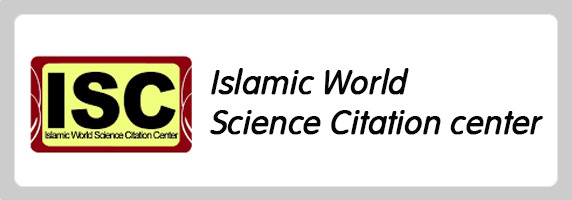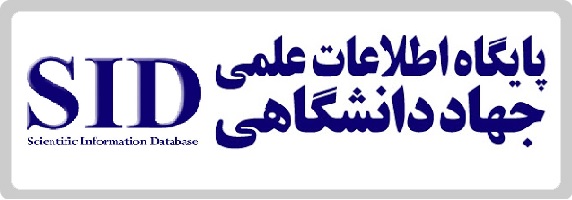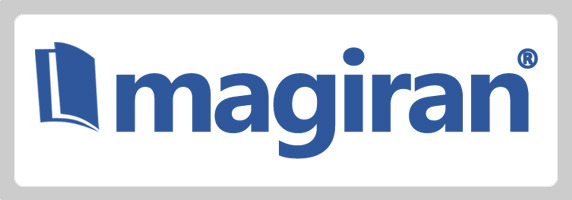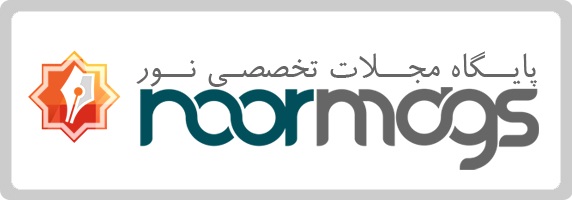اصول اخلاقی
ملاحظات کلی
- خط مشی اخلاقی نشریه جاویدان خرد مبتنی بر دستور العمل های کمیته اخلاق در نشر (cope) است و با آییننامههای رفتاری هیئت تحریریه کمیته بینالمللی مجلات مطابقت دارد.
- خوانندگان، نویسندگان، داوران و ویراستاران در همکاری با این نشریه باید به این سیاست های اخلاقی پایبند باشند.
- نویسندگان در زمان ارسال مقاله به نشریه جاویدان خرد باید تعهد دهند که مقاله آنها حاصل یک کار پژوهشی اصیل است و در جای دیگری به هیچ زبانی منتشر و یا برای بررسی به نشریه دیگری ارسال نشده است.
- در این نشریه هر نوع سرقت ادبی غیراخلاقی و غیرقابل قبول است.
برای کسب اطلاعات در مورد این موضوع در انتشار و دستورالعملهای اخلاقی، لطفاً به http://publicationethics.org مراجعه کنید.
راهنماها و دستورالعمل های اخلاقی کمیته اخلاق نشر (COPE)
مسئولیت های ناشر
- ناشر متعهد میشود که تصمیمات سردبیر و هیأت تحریریه در مورد تمامی مقالات نهایی است و این تصمیمات فقط بر اساس قضاوت حرفه ای اتخاذ شده و تحت تأثیر هیچ گونه منافع تجاری قرار نخواهد گرفت.
- ناشر متعهد میشود که همواره پایبندی به اصول اخلاقی از سوی سردبیر، ویراستاران، اعضای هیئت تحریریه، داوران، نویسندگان و خوانندگان نشریه را زیر نظر داشته و کنترل نماید.
- ناشر متعهد میشود همواره اصلاحات، اصول شفافیت، و بازپس گیری مقالات منتشر شده را در صورت نیاز منتشر و اعلام نماید.
مسئولیت های سردبیر و تیم هیأت تحریریه
- سردبیر و تیم تحریریه باید دارای اختیارات کامل برای رد/پذیرش مقالات باشد.
- سردبیر و تیم تحریریه بر اساس نظرات داوران و اعضای هیئت تحریریه تصمیم نهایی در مورد پذیرش یا عدم پذیرش مقالات را میگیرد.
- سردبیر باید محرمانه بودن مقالات ارسالی تحت بررسی را تا زمان انتشار آنها حفظ کند.
- سردبیر متعهد میشود محرمانگی و ناشناس ماندن اطلاعات داوران را حفظ کند
- سردبیر باید تلاش کند تا از هرگونه تضاد منافع جلوگیری کند و در صورت وجود تعارض منافع آن را افشا نماید.
- سردبیر باید همواره مسائل مربوط به سرقت ادبی و داده های جعلی را بررسی نموده و در صورت نیاز به انتشار اصلاحات، شفاف سازی، بازپس گیری و عذرخواهی اقدام نماید.
- با توجه به سیاست داوری نشریه جاویدان خرد (Double-Blind)، ناشناس بودن داوران و نویسندگان باید حفظ شود.
- سردبیر به هیچ وجه نباید اطلاعات و محتوای مقالات را برای کسی به غیر از نویسنده اصلی، داوران و در صورت لزوم سایر ویراستاران تحریریه فاش کند.
مسئولیت های داوران
- محرمانه بودن اطلاعات مقاله باید در تمامی زمینه ها رعایت شود و فرآیند بررسی مقاله باید به صورت ناشناس انجام شود.
- داوران باید مقالات را در یک دوره زمانی مناسب بررسی و تیم تحریریه را در تصمیم گیری در مورد پذیرش یا عدم پذیرش مقاله یاری نمایند.
- پیشنهادات داوران در خصوص مقالات منتشر شده به صورت فرم داوری و در قسمت نظرات برای نویسنده و ویراستار ارائه شود.
- داوران باید از قضاوت مقالات دارای تضاد منافع خودداری کنند و هرگونه تضاد منافع را در اسرع وقت گزارش کنند.
- قضاوت داوران در مورد کیفیت و محتوای مقالات باید بر اساس نظرات تخصصی و عینی باشد.
معیارهای نویسندگی
هر نویسندهای که نامش در مقاله ثبت شده است لازم است یک یا چند مورد از موارد زیر را انجام داده باشد:
- طرح پژوهش، گردآوری یا تحلیل و تفسیر داده ها؛
- نگارش مقاله یا بازنگری اساسی و کلی؛
- تایید نهایی برای انتشار مقاله؛
- به طور کلی سهم و مشارکت قابل قبولی در طرح و نگارش مقاله داشته باشد تا بتواند مسئولیت عمومی بخش های مناسبی از محتوا را بپذیرد.
مسئولیت ها و تعهدات نویسندگان
- رعایت اصول اولیه نگارش و تحقیق در مقاله نویسی ضروری است و مقالات باید بر اساس قالب مجله نوشته و تنظیم شوند.
- قبل از ارسال مقاله، تمامی نویسندگان باید راهنمای نویسندگان و شرایط و ضوابط ارسال مقاله در این مجله را مطالعه کنند.
- نویسنده مسئول باید رضایت و آگاهی سایر نویسندگان مقاله را از طریق فرم تعهد نویسندگان تأیید و به نشریه ارسال کند.
- کلیه نویسندگانی که نام آنها در مقاله و در برگه تعهد نامه ذکر شده است باید در نگارش و تدوین مقاله مشارکت قابل قبول داشته باشند.
- قدردانی و وابستگی سازمانی نویسندگان باید در مقاله ذکر گردد و هرگونه تضاد منافع بین نویسندگان یا سازمان ها گزارش شود.
- برای پایداری و توسعه فرآیند بررسی تخصصی، از نویسندگان واجد شرایط دعوت می شود تا در روند بررسی سایر مقالات این نشریه مشارکت داشته باشند.
- نویسندگان باید به وضوح حامی پژوهش (در صورت وجود) را گزارش کنند.
- نویسندگان موظفند در صورت مشاهده اشتباه یا نادرستی در مقاله منتشر شده خود، در اسرع وقت به سردبیر اطلاع دهند تا مقاله را تصحیح یا باطل کند.
- همه نویسندگان باید توجه داشته باشند که مقالات ارسال شده به این نشریه برای جلوگیری از سوء رفتار علمی توسط نرم افزار مشابهت یاب بررسی می شوند.
- نویسندگان باید تمام منابع و مأخذی را که به طور مستقیم و غیرمستقیم استفاده کرده اند به درستی ذکر نموده و استناد نمایند.
- در زمان ارسال مقاله، در طول فرایند بررسی و آماده سازی برای انتشار، نویسنده مسئول مقاله، مسئول ارتباط با نشریه و دست اندرکاران آن است و باید جهت اطمینان از انجام کلیه الزامات اداری مجله، مانند رعایت شرایط و ضوابط مقاله، انجام بازنگری مورد نظر داوران، مستندات ثبت کارآزمایی بالینی، و ارائه فرم های ضروری مانند تعهدنامه و تعارض منافع، با کادر اجرایی نشریه در ارتباط باشد؛ همچنین در طول فرآیند داوری، نویسنده مربوطه باید سریعاً به سؤالات سردبیر و مدیر اجرایی پاسخ دهد و پس از انتشار در صورت لزوم با مجله همکاری کند.
به منظور کسب اطلاعات بیشتر به لینک زیر مراجعه کنید:
https://publicationethics.org/files/International%20standards_authors_for%20website_11_Nov_2011.pdf
تغییر در مشخصات نویسندگان
- پس از پذیرش مقاله و در مرحله انتشار اضافه کردن نام نویسنده جدید و یا تغییر در مسئولیت نویسندگان مجاز نیست. ضمناً، اگر نویسندهای بخواهد از فهرست نویسندگان حذف شود، باید نامهای را با امضای خود و سایر نویسندگان ارسال کند که نشاندهنده تمایل آنها برای حذف از فهرست نویسندگان باشد.
- هر گونه تغییر در ترتیب نویسندگان مستلزم امضای نامه ای توسط همه نویسندگان است که نشان دهنده موافقت آنها باشد.
اصول شفافیت
- طرح پژوهش مناسب
پژوهش خوب باید دارای نظم منطقی و طرح پژوهشی مناسب بوده و معیارهای اخلاقی پژوهش را رعایت کرده باشد. انجام تحقیقات با استانداردهای پایین تر ممکن است به منزله سوء رفتار پژوهشی باشد. نویسندگان مسئول کل محتوای علمی و همچنین صحت اطلاعات کتابشناختی هستند.
- تجزیه و تحلیل داده ها
داده ها باید به طور مناسب تجزیه و تحلیل شوند، تجزیه و تحلیل نامناسب لزوماً به معنای سوء رفتار نیست اما جعل و دستکاری داده ها به منزله رفتار نادرست است.
- دسترسی به داده ها
داده های مورد استفاده برای حمایت از یافته های مطالعه باید در صورت درخواست از نویسنده مربوطه در دسترس باشد.
- مطالعات مربوط به انسان و حیوانات
تمام مقالاتی که نتایج تحقیقات تجربی مربوط به افراد انسانی را گزارش میکنند، باید حاوی بیانیهای باشد که رضایت آگاهانه از هر آزمودنی یا قیم او را تأیید کند. تمام مطالعات حیوانی یا انسانی باید پس از تأیید پروتکل آزمایشی توسط کمیته اخلاق محلی، مورد استفاده قرار گیرد.
- تضاد منافع
- تضاد منافع معمولاً ممکن است کاملاً آشکار نباشد و احتمال دارد بر قضاوت نویسنده، داوران و ویراستاران تأثیر بگذارد.
- این موارد بعضاً به عنوان مواردی توصیف شده اند که وقتی بعداً آشکار شوند، خواننده معقول را دچار گمراهی یا فریب خوردن می کند.
- مصادیق تعارض منافع ممکن است شخصی، تجاری، سیاسی، دانشگاهی یا مالی باشند. منافع «مالی» ممکن است شامل اشتغال، تأمین مالی تحقیقات، مالکیت سهم یا سهام، پرداخت برای سخنرانی یا سفر، مشاوره و پشتیبانی شرکت از کارکنان باشد.
- در این نشریه ارسال فرم تعارض منافع الزامی است و نویسندگان باید هرگونه تضاد منافع بین نویسندگان یا سازمان ها را در فرم تعارض منافع ذکر نمایند.
- فرایند داوری همتا
- این مجله از داوری همتا دو سو ناشناس استفاده می کند، به این معنی که هم هویت داور برای نویسنده و هم هویت نویسنده برای داوران ناشناس است.
- برای تسهیل این امر، نویسندگان باید اطمینان حاصل کنند که مقالات آنها به گونه ای تهیه شده است که هویت آنها را آشکار ننماید.
- نویسندگان این حق را دارند که به دلیل تضاد منافع احتمالی، در صورتی که نخواهند مقاله شان توسط یک داور خاص بازبینی شود، با سردبیر ارتباط برقرار کنند.
- سیاست آرشیوی
- خط مشی سیاست آرشیوی نشریه جاویدان خرد، استراتژی و سیاست نشریه را در قبال آرشیو و بایگانی نسخههایی از مقالات توسط نویسندگان در فضاهایی مانند صفحات وب شخصی و سازمانی و مخازن موضوعی مختلف، بیان میکند.
- نشریه جاویدان خرد تحت مجوز دسترسی آزاد (Open Access) منتشر میشود و بر این اساس مقالات را می توان بلافاصله طبق شرایط مجوز خاص نشریهCreative Commons Attribution Non-Commercial 4.0 International License: (BY-NC 4.0) آنها در دسترس قرار داد. اگر نویسندهای مقالهای را تحت مجوز دسترسی آزاد منتشر کرده باشد، نویسنده از سوی این نشریه مجاز است تا نسخه منتشر شده را در هنگام انتشار بهجای نسخههای خطی پذیرفته شده به اشتراک بگذارد.
- نویسندگان همچنین میتوانند از اطلاعات چکیده و اطلاعات کتابشناختی (مانند عنوان، نام نویسنده، تاریخ انتشار) مقاله خود در هر مکانی و در هر زمان از جمله رسانههای اجتماعی مانند لینکدین، فیسبوک، وبلاگها و توییتر مجدداً استفاده کنند، مشروط بر اینکه در صورت امکان، پیوندی به مقاله اضافه شود. ترجیحاً پیوند باید شامل شناسه دیجیتال شی (DOI) باشد که در اطلاعات استناد در مورد مقاله به صورت آنلاین یافت می شود. نسخه پذیرفته شده ممکن است در: وب سایت شخصی نویسنده و/یا مخزن یا آرشیو شرکت/موسسه نویسنده قرار گیرد.
- نشریه جاویدان خرد در حال حاضر در وب سایتهای زیر نمایه میشود:
- پایگاه استنادی علوم جهان اسلام
- پایگاه اطلاعات نشریات کشور (مگ ایران)
- پایگاه تخصصی مجلات نور
- پایگاه مرکز اطلاعات علمی جهاد دانشگاهی
- برنامه زمانبندی انتشار
نشریه جاودان خرد، به صورت دو فصلنامه است و 2 شماره در سال منتشر می کند. تمامی مقالات منتشر شده از ابتدا تا کنون در وب سایت اختصاصی نشریه به آدرس (https://www.javidankherad.ir/)در دسترس قرار دارد.
- حریم خصوصی و محرمانه بودن
- محرمانگی در تمام فرایندهای بررسی مقاله و توسط تمامی نقش ها لازم است رعایت شود.
- تمامی مقالات باید با رعایت محرمانگی بررسی شوند.
- داوران نیز حقوق محرمانگی دارند که سردبیر باید به آن احترام بگذارد. اگر ظن عدم صداقت یا تقلب در مقاله وجود داشته باشد، ممکن است محرمانگی نقض شود، اما در غیر این صورت باید رعایت شود.
- علاوه بر نویسندگان و داوران، ویراستاران از افشای اطلاعات مربوط به مقالات (از جمله دریافت، محتوا، وضعیت در فرآیند بررسی، انتقاد داور، یا سرنوشت نهایی) منع میشوند.
- ویراستاران باید به داوران توضیح دهند که مقلاتی که برای بررسی ارسال می شوند، در مالکیت و دارایی خصوصی نویسندگان هستند و داوران و کارکنان تحریریه باید با خودداری از بحث عمومی یا تصاحب آثار نویسندگان قبل از انتشار مقاله، به حقوق نویسندگان احترام بگذارند.
- داوران مجاز نیستند که از مقاله برای خود کپی تهیه کنند و اجازه ندارند آن را با دیگران به اشتراک بگذارند مگر در صورتی که دبیر یا سردبیر به آنها اجازه دهد.
- همچنین بدون اجازه داور، نویسنده و ویراستار، نظرات بازبینی و داوری نباید بهصورت عمومی منتشر شود.
- صاحب امتیاز و ناشر
مؤسسه پژوهشی حکمت و فلسفه ایران
- حق چاپ (حق انتشار) و مجوز انتشار
نشریه جاویدان خرد دسترسی آزاد و فوری به محتوای خود را فراهم می کند. همه مقالات این مجله تحت مجوز بینالمللی Creative Commons Attribution Non-Commercial 4.0 International License: (BY-NC 4.0) منتشر میشوند. این مجوز به کاربران امکان میدهد که مطالب را در هر رسانه یا قالبی فقط برای مقاصد غیرتجاری و فقط تا زمانی که انتساب به سازنده داده میشود، توزیع، بازآفرینی، تطبیق و ایجاد کنند.
- تبلیغات
نشریه جاویدان خرد تبلیغات ندارد.
- اصلاحیه یا بازپسگیری مقالات
برای حفظ یکپارچگی سوابق علمی و دانشگاهی، گاهی ممکن است نشریه به ضرورت مجبور به انتشار اصلاحیه یا بازپسگیری مقاله منتشر شده در مجله باشد. طبق هنجارهای مورد توافق جامعه دانشگاهی، این کار معمولاً با انتشار "اصلاحیه" یا "بازپسگیری" و بدون ایجاد تغییرات در مقاله اصلی و فقط با انتشار مقاله جدیدی که یک هایلایت اصلاحیه یا بازپس گیری دارد، انجام میشود. مقاله اصلی در مالکیت عمومی باقی میماند و معمولاً باید در Erratum یا Retraction بعدی نمایه شود. در موارد استثنایی که مطالب مقاله قابل اصلاح نباشد ممکن است مجبور شویم مطالب را از وبسایت و سایتهای آرشیو خود حذف کنیم. ممکن است لازم باشد نویسنده (نویسندگان) اصلی با اظهار نظر در مورد مقاله منتشر شده، اصلاحات جزئی در مقالات منتشر شده انجام دهند. تنها در صورتی قابل قبول خواهد بود که اصلاحات بر نتایج یا نتیجه گیری مقاله تأثیری نداشته باشد.
- اصلاحیه
تغییرات در مقالات منتشر شده که بر معنا و نتیجه مقاله تأثیر می گذارد، اما کل مقاله را باطل نمی کند، ممکن است به صلاحدید ویراستار یا ویراستاران، با انتشار یک اصلاحیه (Erratum) نمایه شده و مرتبط با مقاله اصلی اصلاح شود. تغییرات در نویسندگی مقالات منتشر شده از طریق Erratum تصحیح می شود.
- بازپس گیری
اگر اطلاعات علمی در یک مقاله به طور قابل توجهی در موارد نادر به خطر بیفتد، ممکن است مناسب باشد که مقالات منتشر شده پس گرفته شود. در این موارد تصمیمات نشریه باید با دستورالعمل های بازپس گیری COPE مطابقت داشته باشد. مقالات پس گرفته شده نمایه شده و به اصل مقاله ارجاع داده می شود.
بیانیه شفافیت در استفاده از هوش مصنوعی
با توجه به پیشرفتهای سریع در حوزه فناوریهای مبتنی بر هوش مصنوعی، بهویژه در زمینه نگارش متون علمی، ترجمه، تحلیل دادهها و بازبینی نگارشی، مجله علمی ما بر آن است که استفاده از ابزارهای هوش مصنوعی در فرآیند تهیه، داوری و انتشار مقالات را با شفافیت کامل و در چارچوب اصول اخلاق نشر علمی اعلام و مدیریت نماید.
این مجله در راستای پایبندی به اصول اخلاقی و حرفهای نشر، بهویژه دستورالعملهای انجمن جهانی سردبیران مجلات پزشکی (WAME)، استفاده از هوش مصنوعی در فرآیند نگارش، داوری و ویرایش علمی را با رعایت شرایط زیر مجاز میداند:
-
استفاده شفاف و مسئولانه: نویسندگان موظفاند در صورت بهرهگیری از ابزارهای هوش مصنوعی (از جمله اما نه محدود به ChatGPT، Grammarly، DeepL و غیره) در تهیه هر بخش از مقاله (مقدمه، مرور ادبیات، نتایج، بحث، ترجمه، نگارش مجدد و...)، این موضوع را در بخش تقدیر و تشکر یا پاورقی صفحه اول بهصورت شفاف اعلام نمایند.
-
عدم انتساب هوش مصنوعی بهعنوان نویسنده: مطابق دستورالعمل WAME، هیچ ابزار یا سامانه هوش مصنوعیای نمیتواند بهعنوان نویسنده مقاله علمی در نظر گرفته شود؛ زیرا فاقد مسئولیتپذیری اخلاقی و قانونی است.
-
بررسی انتقادی و اعتبارسنجی انسانی: تمامی محتواهایی که با کمک هوش مصنوعی تولید میشوند باید توسط نویسندگان انسانی بازبینی، اصلاح و تأیید شوند. مسئولیت کامل در قبال صحت، اصالت، و انسجام مطالب نهایی با نویسندگان انسانی است.
-
استفاده در داوری علمی: داوران در صورت استفاده از ابزارهای هوش مصنوعی برای تحلیل متون یا کمک در نوشتن بازخوردها، باید از ورود اطلاعات محرمانه مقالات به این ابزارها خودداری کرده و در صورت استفاده، محرمانگی دادهها را رعایت نمایند.
-
نقض احتمالی اصول اخلاقی: استفاده نابجا از هوش مصنوعی که منجر به تحریف دادهها، تولید اطلاعات نادرست، یا سرقت علمی شود، نقض آشکار اصول اخلاقی نشر تلقی شده و پیامدهای حقوقی و اخلاقی بههمراه خواهد داشت.
-
بازبینی مستمر سیاستها: با توجه به پویایی حوزه هوش مصنوعی، سیاستهای مجله در این خصوص بهصورت مستمر مورد بازنگری قرار گرفته و در صفحه رسمی مجله بهروزرسانی خواهد شد.
بدین ترتیب، مجله ما به رعایت دقیق و صادقانه اصول شفافیت در استفاده از هوش مصنوعی پایبند بوده و خود را متعهد به پیروی از بیانیه رسمی WAME با عنوان "Recommendations on Chatbots and Generative Artificial Intelligence in Relation to Scholarly Publications" میداند.
جهت مطالعه کامل این دستورالعمل میتوانید به پیوند زیر مراجعه فرمایید:
https://wame.org/page3.php?id=106





